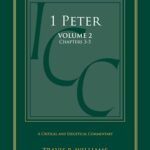Analysis and Critique of the Federal Vision Teaching of Justification (Part 1)
I’ve seen several people recently discussing the issue of Federal Vision, a theological movement among Reformed churches that arose in 2002 and was both championed and condemned by various leaders within those churches. Some seem confused as to why some popular pastors and teachers are criticized for having been part of the movement. This controversy was ongoing when I was a graduate student in 2007, so I did a paper at the time in order to understand Federal Vision’s teaching on justification and to offer a critique of it. I plan to post it in four sections on the blog as a help to those trying to understand what at least part of the controversy was about.
Introduction
In the history of the Protestant church, no doctrine has been embraced as lovingly and zealously as sola fide. This key doctrine is the thermometer, which accurately measures the health of the church. Since Luther’s reclamation of this teaching, justification by faith alone has been under attack from a variety of sources. Beginning with the Council of Trent, the Roman Catholic Church has continually launched its assault against this Reformed pillar. In more recent times, these attacks have come from within broader Protestantism. The attempt among some Evangelicals to find common ground with the Roman Church has led to a redefinition of justification. The New Perspective has caused many to wonder whether Luther, in his articulation of justification, misread Paul. These and other movements have created no small stir among Protestant churches concerning sola fide. What does the Bible say about justification? What must a person affirm to be considered orthodox? What can he deny? Have theologians been asking the wrong questions for the last few centuries?
In the midst of this controversy and confusion, another theological movement has arisen in recent years within conservative Reformed churches. The proponents of this movement have asserted that those in the Reformed tradition have lost their roots by allowing dispensational, fundamentalist, and Baptist teaching to infiltrate the Reformed church. They call Reformed churches back to the true Reformed teaching. Some have lumped this movement with the New Perspective. Though there are similarities, they are not one and the same. Others refer to the movement as Auburn Avenue Theology because the movement has strong ties to Auburn Avenue Presbyterian Church in Monroe, LA. The name most commonly applied to this teaching and seemingly favored by its adherents is Federal Vision.[1]
Critics of Federal Vision (hereafter FV) have reacted strongly to its teaching, labeling it heresy. They claim that FV teachers, in arguing for a return to the Reformed tradition, have actually offered a return to Rome. FV teachers have responded to real problems in the Reformed tradition, but their proposed solutions create even greater problems. They have departed from justification by faith alone and have introduced a works salvation. This is not an accusation that can be lightly dismissed. FV proponents have countered that they have simply been misunderstood and misinterpreted. They would never introduce a works salvation. Their teaching is still within the Reformed tradition, and they strongly affirm justification by faith alone. Obviously, both cannot be right. Does FV teach a heretical view of justification, or have they simply been misunderstood? These posts will analyze the teaching of FV in regard to justification and compare it to Scriptural teaching on this doctrine. This approach will demonstrate that FV misrepresents the biblical understanding of justification.
Two Underlying Issues
Two underlying issues in FV must be considered before delving specifically into the realm of justification. One of the key issues, if not the key issue, for FV is the objectivity of the covenant. FV seeks to determine who is included in the church. It is more concerned with ecclesiology than with soteriology.[2] Whereas many encourage people to look in themselves to see if they really have believed, FV tells them to look at what they can know: whether or not they were baptized. It teaches that the baptized children of believers are in the covenant just as much as any adult convert who has been baptized. FV followers want to be able to affirm that their children are saved, according to God’s promise to them.[3] Much of their teaching revolves around this issue. If someone disagrees with their conclusion that baptized infants are truly saved, then it is likely he will disagree with much of the rest of FV doctrine.
FV also claims to provide a new approach to looking at doctrine and Scripture.[4] This approach creates a distrust of systematic teaching and terminology.[5] Instead of utilizing normal theological definitions, FV writers argue that terms should be used as the Bible uses them. The Bible cannot be viewed as a set of theological propositions but as a story of redemption.[6] Their suspicion of systematic theology leads FV proponents to use theological terms with traditional definitions in non-traditional ways.[7] This makes understanding exactly what they are saying rather difficult and naturally leads to confusion, causing critics and proponents to speak past each other. At times, FV proponents can affirm traditional teaching with traditional terminology that they have earlier redefined in a non-traditional way. Thus, critics point out that they have, in essence, still denied that traditional teaching. At other times, critics claim that FV teachers have put forward false doctrine when the problem may be more of an issue of semantics. The failure of critics to consider a non-traditional use of a term leads to the argument that critics simply misunderstand FV teaching. This supposedly new approach to Scripture must be kept in mind when evaluating FV teaching, but it cannot be used as a quick and easy excuse for any apparent false doctrine.[8]
Read Part 2 of this series here.
[1] Guy Prentiss Waters, The Federal Vision and Covenant Theology (Phillipsburg, NJ: P & R, 2006), 3. Waters is not himself an adherent but is offering an analysis.
[2] See, e.g., Peter J. Leithart, The Baptized Body (Moscow, ID: Canon Press, 2007), ix.
[3] See, e.g., Doug Wilson, “Union with Christ: An Overview of the Federal Vision,” in The Auburn Avenue Theology Pros and Cons, ed. E. Calvin Beisner (Fort Lauderdale, FL: Knox Theological Seminary, 2004), 2–3. The belief that their children are saved is why many of those in FV also practice paedo-communion.
[4] See, e.g., Steve M. Schlissel, “A New Way of Seeing?” in The Auburn Avenue Theology Pros and Cons, ed. E. Calvin Beisner (Fort Lauderdale, FL: Knox Theological Seminary, 2004), 20.
[5] As described by Joseph A Pipa Jr, “Federal Vision Theology: An Overview of Critics’ Concerns,” in The Auburn Avenue Theology Pros and Cons, ed. E. Calvin Beisner (Fort Lauderdale, FL: Knox Theological Seminary, 2004), 11–12. Pipa is not himself an adherent.
[6] See, e.g., Schlissel, “A New Way of Seeing?” p. 22
[7] This critique is made by E. Calvin Beisner, “Concluding Comments on the Federal Vision,” in The Auburn Avenue Theology Pros and Cons, ed. E. Calvin Beisner (Fort Lauderdale, FL: Knox Theological Seminary, 2004), 306–7.
[8] Another possible source of confusion is derived from the way that FV teaching was spread. Rather than writing journal articles or discussing their views with fellow theologians, FV adherents disseminated their work by and large through lectures and online articles. This resulted in a lack of clarity, overstatement, and a lack of refinement from fellow theologians.




I am looking forward to the next post. Thank you Ben.
It is my understanding that there is a broad range of beliefs within the FV movement. For example, it is my understanding based on his conversations with those such as Phil Johnson and James White that Doug Wilson fully accepts the doctrine of double imputation. He also distinguishes between the “decretal elect” and “covenental elect,” meaning that he believes God elects those to be truly saved as well as other to just be part of the covenant community. (No doubt this issue would be resolved if he only accepted the biblical teaching of credobaptism). Meanwhile others within the FV movement have gotten quite cozy with the works based salvation of NPP and NT Wright. Is it fair then to address “Federal Vision Theology” when there is such a broad range within this movement?
Two quick points:
1. These posts, as indicated in this introduction, are not aiming to tease out all the ways in which various people have developed in their thinking or the positions they currently hold. Rather, the focus is on what the controversy was about (i.e., what were they saying, and why was that a problem).
2. The proponents of this teaching were fine writing books with the title “The Federal Vision”, and “The Auburn Avenue Theology,” so I think it is fair to use their own language.
Thank you for the clarification
Excellent